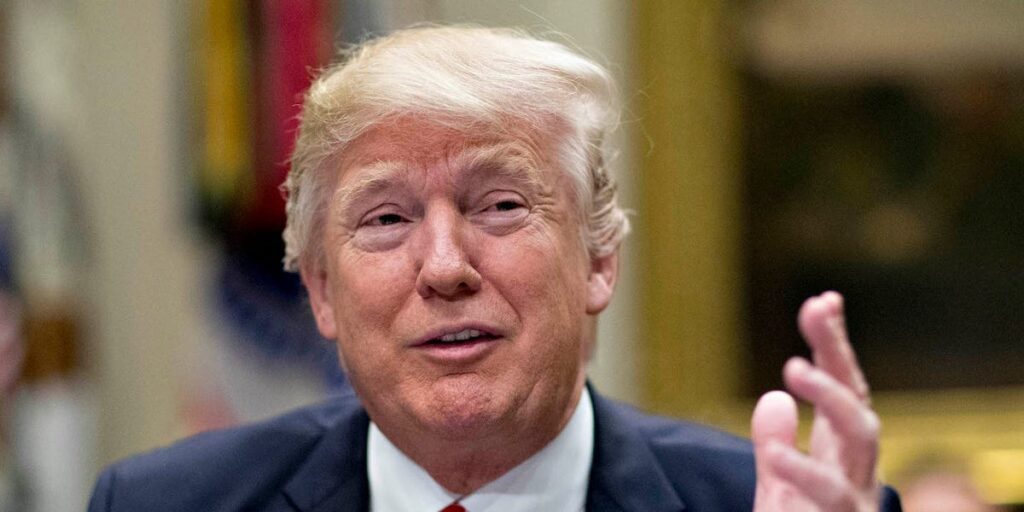- Experts have been weighing in on why Donald Trump won the US election.
- They pointed to Trump’s strength on immigration and the economy and a global trend of voters punishing incumbents.
- Here are some of the sharpest analyses we’ve seen about Trump’s victory.
There’s been an avalanche of analysis following Donald Trump’s victory in the US presidential election on Wednesday, as experts sought to explain how the former president won a second term.
They’ve offered a variety of reasons, ranging from a populist revolt against the elites to Vice President Kamala Harris’ shortcomings as the Democratic candidate.
Here is some of the best commentary we’ve seen.
Steve Hanke, Johns Hopkins University
Hanke, professor of applied economics and former advisor to President Ronald Reagan, told Business Insider in an email: “The American voters have reacted negatively to the American elites who run the show in Washington, the media and so on and so forth. The election outcome was a revolt against the elites.”
Nate Cohn, chief political analyst at The New York Times
“Trump gained across the board — including among the voters who seemed most skeptical of him eight years ago, from Hispanic voters in New York City to technology workers in San Francisco.
“None of this is what Democrats would have imagined a decade ago, when many of them assumed that demographic and generational change would bring a new Democratic majority. Instead, many of the voters whom Democrats viewed as the bedrock of their coalition grew so frustrated with the status quo that they decided to back Mr. Trump instead.”
Tina Fordham, independent strategist and advisor
“Trump’s victory is the most powerful example this year of a political and economic environment that has been brutal for incumbents around the world and brought home the fact that inflation is political kryptonite.
“This lesson will not soon be lost on governments — growth is not enough if prices are high and wages perceived to not keep pace.
The dividing lines in US politics remain bright along geographical, educational, and gender lines, with Trump’s strongest support coming from working-class men. This result will leave many Americans not only angry, but fearful.
:On a global level, there is no getting away from the fact that Trump’s victory will be transformational for both the US and the international system, with geopolitical and economic risks heightened.”
Nate Silver, founder of FiveThirtyEight and author of the Silver Bulletin newsletter
Silver republished a lengthy post from late October titled “24 reasons that Trump won.“
Those reasons included inflation, negative perceptions of the economy and nostalgia for Trump’s first term, sluggish wage growth, a cultural shift to the right, disillusionment among male and minority voters, and Harris’ late nomination.
Among Silver’s other reasons were Trump’s skill at convincing voters he’s on their side and success in appealing to marginal voting groups; the Israel-Hamas war dividing the Democratic base; the assassination attempts on Trump boosting his favorability; and Harris’ failure to explain her shift from left wing to moderate or articulate a clear vision for America.
Matthew Yglesias, author of the Slow Boring newsletter
“I think ‘don’t nominate women’ would be the worst possible takeaway from this,” Yglesias wrote on X. “Lots of women overperform electorally, and since most Democrats are women if you become biased against nominating them you will cut the party off from talent. Learn from the ones who win!”
“Trump has made a lot of impossible and oft-contradictory promises and will have problems,” Yglesias said in another X post. He added in a follow-up tweet: “One obvious one is that Trump managed to both reassure a healthy slice of people about abortion rights while also retaining the enthusiastic support of people who really want to ban abortion. Hard needle to thread!”
Dominic Sandbrook, historian, commentator and author
Sandbrook told The Rest is Politics podcast that Kamala Harris failed to win sufficient support from female, Latino and Black voters, while Donald Trump had a “history of outperforming the polls … particularly in rural areas and the South and the suburbs.”
He argued that Harris and Hillary Clinton had similar weaknesses, with a proportion of the electorate unwilling to consider a female commander in chief.
Many voters were also “suspicious” of a mixed-race woman from California who “appears to be the embodiment of, for want of a better expression, the metropolitan liberal elite,” Sandbrook said.
Eric Corellessa, national political correspondent at TIME
“The Democrats’ hasty replacement of the first-term president with Harris deprived them of a better-tested candidate who could potentially have rallied broader support. Voters took Trump’s own advanced age and increasingly incoherent trail rhetoric in stride. Much of the country read Trump’s legal woes as part of a larger corrupt conspiracy to deny him, and them, power. And he benefited from a global restiveness in the wake of the COVID-19 pandemic that has ousted incumbent leaders around the world.
“Whenever abortion came up, Trump insisted the issue was now up to the states, and pivoted as much as possible to the economy, immigration, and crime—issues the campaign believed triggered anxiety with well-to-do suburban women who were open to backing him.
“Musk also turned X, his social-media platform, into a cauldron of conspiracy theories and characterized the stakes of the race to his more than 200 million followers as existential.”
Read the full article here
















